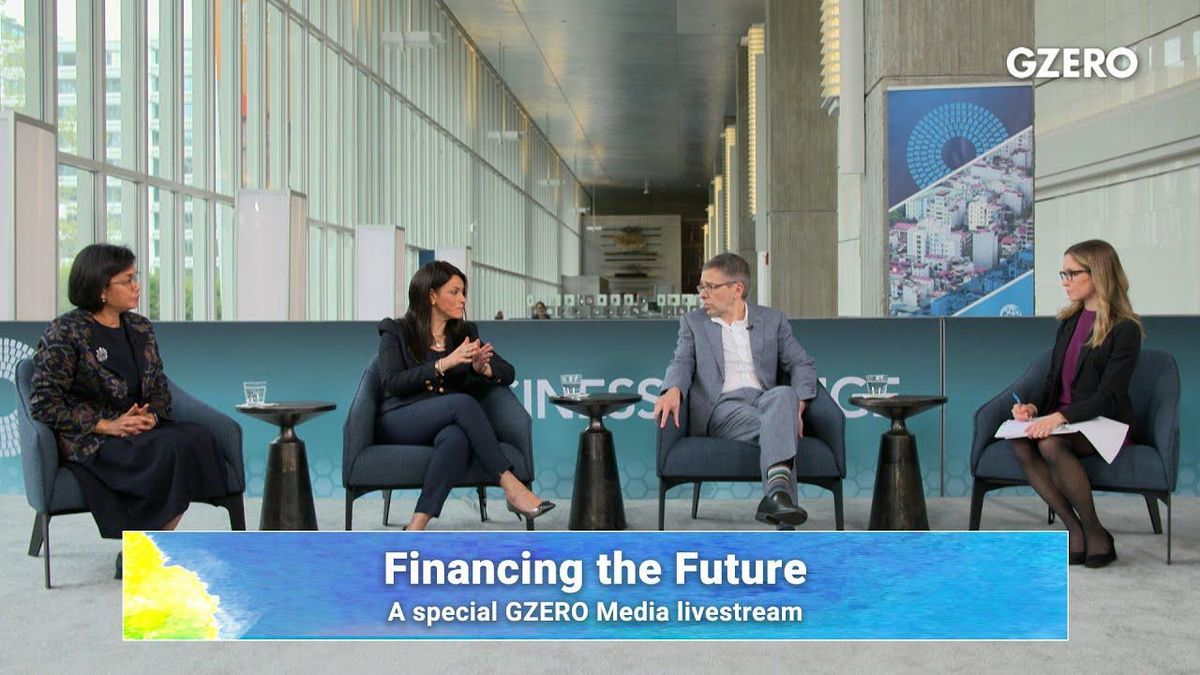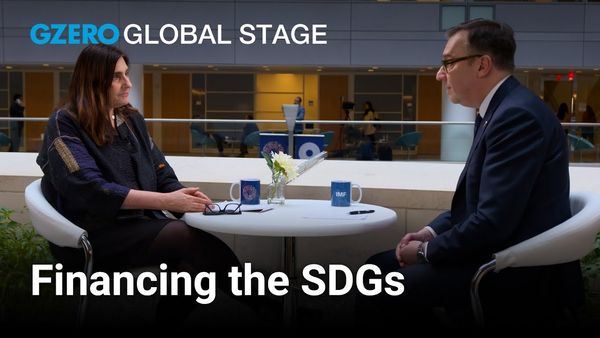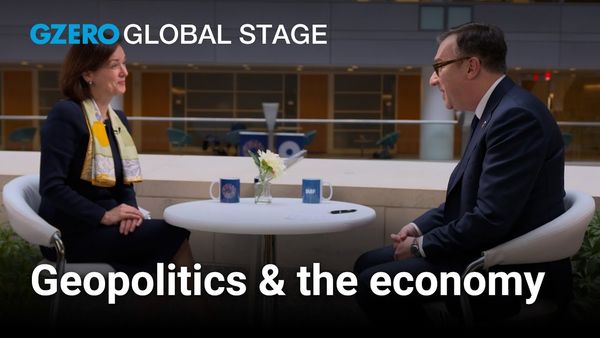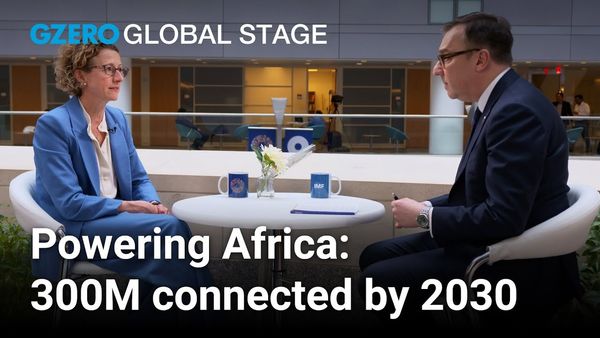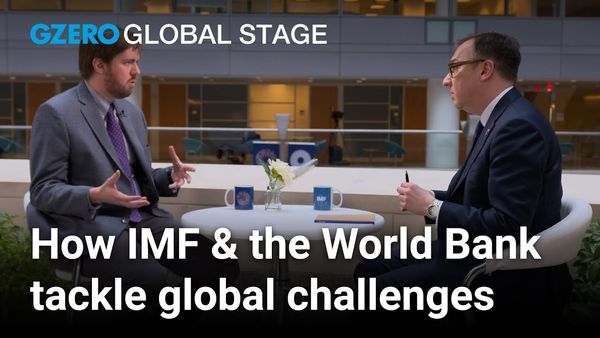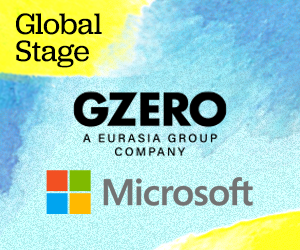Yes, said the majority of respondents in a recent GZERO poll.
What's happening in Ukraine has undone much of the momentum for narrowing the equality gap created during the pandemic, said Ian Bremmer, president of Eurasia Group and GZERO Media, during a Global Stage livestream conversation hosted by GZERO in partnership with Microsoft. The event was held on site at the headquarters of the World Bank in Washington, DC , and was moderated by Jeanna Smialek, Federal Reserve reporter at The New York Times. The war has aggravated pre-existing problems like high inflation and supply chain disruptions. A cease-fire would help end all this, but don't count on it.
This week the World Bank and the International Monetary Fund are holding their annual spring meetings. The conflict is top and center on the agenda, as is financial assistance to first help Ukraine keep the lights on and someday rebuild when the Russians leave.
"We're working on that," World Bank President David Malpass said upon joining the discussion just minutes after meeting Ukrainian officials. Beyond the conflict itself, Malpass is now more broadly concerned about the global economic slowdown and whether central banks have the tools for a soft landing after raising interest rates to fight inflation.
One country that's successfully stood up to the Russian threat is Lithuania, whose Finance Minister Gintarė Skaistė talked about her country's long-term energy independence strategy. Lithuania recently became the first EU member state to completely wean itself off Russian fossil fuels.
And what about the ripple effects from the conflict in other parts of the world, like food security? This is a big deal in countries in the Middle East and North Africa that rely heavily on Russian and Ukrainian wheat imports like Egypt.
Rania Al-Mashat, Egyptian minister for international cooperation, explained how her country diversified its food imports to soften the impact of such disruptions.
Later this year, Egypt is hosting the COP27 climate summit. But even more importantly, right before that meeting there will be a G20 summit in Indonesia — and Russia's invited.
What'll happen? Will the US and its allies walk out of rooms when the Russians show up? The G20 consensus has been fragmented, said Indonesian Finance Minister Sri Mulyani Indrawati. Indeed it has, added Bremmer, who believes the war in Ukraine is "ripping up the fabric of geopolitics" for years to come.
Finally, Vickie Robinson, head of Microsoft's Airband Initiative to expand broadband access throughout the developing world, shared her perspective about how getting more people online will help achieve global equality.
- The pandemic's impact on women and the global economy - GZERO ... ›
- Zelensky plea for additional Ukraine support puts US in a bind ... ›
- What We're Watching: Zelensky snubs Berlin, IMF warns of debt ... ›
- The Graphic Truth: Kicking the Russian gas habit - GZERO Media ›
- Hard Numbers: Lithuania cuts off Russian gas, Shanghai mass ... ›
- Climate, Biden, and signs of hope for 2021: World Bank's David ... ›
- Unpacking Lithuania's energy independence strategy - GZERO Media ›
- Haiti stuck in a "vicious circle," says IMF economist - GZERO Media ›
- Education’s digital revolution: why UN Secretary-General António Guterres says it's needed - GZERO Media ›
- Is the world on the brink of another global recession? - GZERO Media ›
- David Malpass: I'm not a climate denier - GZERO Media ›
- The state of the global economy is … not good - GZERO Media ›
- The world "is more coupled than we think" - GZERO Media ›


